China to Mexico Freight Forwarder
The Ultimate Guide
Shipping from China to Mexico: The Ultimate Guide (2024 Updated)
Table of Contents
In recent years, trade relations between China and Mexico have grown exponentially. In 2023, China became Mexico’s second-largest trading partner, accounting for nearly 15% of Mexico’s total imports. This dynamic relationship is fueled by China’s ability to manufacture a vast array of goods at competitive prices. Key Chinese exports to Mexico include electronics, machinery, automotive parts, textiles, and consumer goods.
For Mexican importers, sourcing from China has become a vital strategy for maintaining competitive pricing, expanding product offerings, and boosting profit margins. However, navigating the complexities of international shipping from China to Mexico requires careful planning, an understanding of logistics, and compliance with Mexican customs regulations.
This guide is designed for businesses in Mexico looking to optimize their shipping processes from China. It covers everything from cost comparisons of different shipping methods to transit times, customs procedures, and how to select the right freight forwarder. Whether you’re new to international trade or looking to improve your current operations, this guide will help you reduce costs and avoid common mistakes.
September 2024 Shipping Update: From China to Mexico
Global economic factors, including rising fuel prices, container shortages, and changing demand patterns, have impacted shipping routes between China and Mexico. Here’s an updated breakdown of the key shipping methods for the past three months.
| Shipping Method | Shipping Cost (USD) | Date |
|---|---|---|
| Air Freight | $3,500 – $4,000 per ton | September 2024 |
| Sea Freight (FCL) | $6,000 – $7,500 per 40ft container | August 2024 |
| Sea Freight (LCL) | $250 – $350 per cubic meter | August 2024 |
| Rail Freight via U.S. | $4,500 – $5,000 per container | July 2024 |
Trends Affecting Shipping Costs in 2024
- Fuel Prices: Rising global fuel prices are having a direct impact on both air and sea freight rates. Ocean carriers are adjusting their fuel surcharges, leading to fluctuations in overall shipping costs.
- Port Congestion: Port congestion in both China and Mexico, particularly at Shanghai and Manzanillo, has caused delays. To avoid long wait times, some businesses have shifted to smaller ports, which can be less efficient but are less congested.
- Container Availability: While container shortages were a major issue in 2021 and 2022, availability has improved in 2024. However, the demand for containers remains high, particularly for high-volume routes such as China to Mexico.
Recommendations for Mexican Importers (September 2024)
Plan Ahead: With fluctuating prices and potential delays, it is vital to plan shipments in advance. Secure space on vessels as early as possible, especially for peak shipping periods like Q4 leading up to the holiday season.
Diversify Shipping Methods: Depending on the nature of your shipment (urgency, size, and value), consider diversifying your shipping methods between sea, air, and even rail freight. This can provide flexibility, reduce costs, and avoid reliance on a single shipping method prone to delays.
Use Freight Forwarders Wisely: Professional freight forwarders can help navigate port congestion, secure space on vessels, and provide cost-effective solutions, particularly for complex shipments involving multiple carriers.
Monitor Currency Exchange Rates: Exchange rate fluctuations between the Chinese yuan and the Mexican peso can affect overall shipping costs. Keep an eye on the exchange rate and hedge against sudden shifts if possible.
Freight Shipping Costs from China to Mexico for September 2024
Overview of Costs by Shipping Mode
| Shipping Mode | Shipping Cost (USD) | Characteristics |
|---|---|---|
| FCL (20-foot container) to Manzanillo | $4,500 – $5,200 per container | Best for large volumes, cost-effective for bulk shipments |
| FCL (40-foot container) to Manzanillo | $6,000 – $7,500 per container | Ideal for high-volume cargo, reduces per-unit cost |
| Air Freight (1000kgs+) to Mexico City Airport | $3,500 – $4,000 per ton | Fastest option, best for high-value or time-sensitive goods |
| LCL (Less than Container Load) to Veracruz | $250 – $350 per cubic meter | Good for smaller shipments, flexible and affordable |
| Rail Freight via U.S. to Mexico | $4,500 per container | Alternative to sea freight, but slower and requires extra customs clearance |
Summary of Recent Freight Prices:
As of September 2024, freight costs between China and Mexico have stabilized after experiencing significant volatility over the past two years. Sea freight, particularly FCL, remains the most cost-effective option for high-volume shipments, while LCL offers a flexible solution for smaller loads. Air freight continues to be the fastest and most reliable option for urgent shipments, though it comes at a premium price. Rail freight is available but often requires additional customs procedures when transiting through the U.S., which can cause delays.
Understanding Import Tax, Duties, and VAT Costs in Mexico
Mexico applies various taxes and duties on imported goods based on their classification under the Harmonized System (HS) codes. Importers are subject to import duties, Value Added Tax (VAT), and other possible charges, such as antidumping duties for certain products.
| Products | Custom Duties | VAT Cost (16%) |
|---|---|---|
| Electronics (e.g., laptops) | 10% | 16% |
| Automobiles & Auto Parts | 20% | 16% |
| Textiles (e.g., clothing) | 30% | 16% |
| Industrial Machinery | 5% | 16% |
| Pharmaceuticals | 5% | 16% |
| Toys | 25% | 16% |
| Footwear | 25% | 16% |
| Medical Devices | 5% | 16% |
| Furniture | 15% | 16% |
| Jewelry | 20% | 16% |
| Plastics | 12% | 16% |
| Watches and Accessories | 12% | 16% |
| Sports Equipment | 18% | 16% |
| Food and Beverages (packaged) | 35% | 16% |
| Household Appliances | 15% | 16% |
Additional Charges to Be Aware of:
- Antidumping Duties: Mexico imposes antidumping duties on several Chinese products, particularly in sectors like steel, textiles, and footwear, to protect local industries.
- Excise Taxes: Certain goods such as alcohol, tobacco, and sugary beverages may also attract excise taxes on top of the standard customs duties and VAT.
Tips for Navigating Tax and Duty Costs:
- Accurate HS Code Classification: Ensure that your goods are classified correctly under Mexico’s HS code system. Misclassification can lead to delays, fines, and even the seizure of goods.
- Use of Free Trade Agreements: Mexico is a member of several trade agreements that may reduce or eliminate tariffs on certain goods. While Mexico does not have a free trade agreement with China, strategic use of transit countries could reduce duties.
- Customs Brokers: Hiring an experienced customs broker can help minimize mistakes and ensure compliance with Mexico’s customs regulations.
Navigating Legal Compliance in International Shipping
To ensure smooth customs clearance and avoid penalties, Mexican importers need to comply with both Mexican and Chinese export regulations. This includes documentation, proper packaging, labeling, and meeting safety and quality standards.
Key Legal Requirements for Importing into Mexico:
- Commercial Invoice: The commercial invoice must include the total value of the goods, detailed descriptions, quantity, and the HS code.
- Packing List: This document lists the contents, dimensions, and weight of each package.
- Bill of Lading (B/L): A crucial document that serves as a contract between the shipper and carrier.
- Certificate of Origin (if applicable): Required for certain goods to qualify for reduced tariffs under specific trade agreements.
- Import Permits: Certain goods, like pharmaceuticals or electronics, may require import permits or licenses.
- Product Labeling: All products must meet Mexican labeling requirements, including information in Spanish about the country of origin, ingredients, warnings, and usage instructions.
Common Legal Pitfalls and How to Avoid Them:
- Incorrect Documentation: Failure to provide accurate or complete documents can result in delays or fines. Double-check with your customs broker to ensure everything is in order.
- Non-compliance with Mexican Standards (NOMs): Products that fail to meet Mexican regulatory standards may be denied entry. Ensure that any electronics, automotive parts, or medical devices comply with Mexican NOM (Normas Oficiales Mexicanas) standards before shipping.
Shipping from China to Mexico: Transit Time Breakdown
Transit times from China to Mexico vary significantly based on the shipping method and port locations. Sea freight remains the most popular option due to its lower cost, but air freight is the fastest and rail freight provides an alternative for inland delivery.
Comparison of Transit Times Across Shipping Modes
| Shipping Mode | Transit Time |
|---|---|
| Air Freight | 3-7 days |
| Sea Freight (FCL) | 20-40 days |
| Sea Freight (LCL) | 30-45 days |
| Rail Freight (via U.S.) | 25-35 days |
Factors such as port congestion, customs clearance times, and the shipping route chosen can influence these transit times.
Factors Affecting Transit Times and Mitigation Strategies:
Port Congestion: Both Chinese and Mexican ports can experience congestion, especially during peak seasons (e.g., the weeks leading up to Chinese New Year). To mitigate delays, book shipments well in advance and consider alternative ports if possible.
Customs Delays: Delays in customs clearance can add days or even weeks to your delivery time. Ensuring that all documentation is in order before the goods arrive at port can help avoid unnecessary delays.
Weather Conditions: Typhoons and other severe weather events can cause significant delays. In such cases, air freight, which is less affected by sea conditions, can be a more reliable alternative.
Inland Transportation Delays: If your final delivery destination is far from the port, consider rail or truck options that may offer faster inland delivery.
Door-to-door shipping from China to Mexico
What is Door-to-Door Service?
Door-to-door shipping is a comprehensive logistics solution in which the freight forwarder handles every aspect of the shipping process—from pickup at the supplier’s factory in China to delivery at the importer’s final destination in Mexico. This all-inclusive service simplifies logistics management and ensures a seamless experience for the buyer.
Advantages of Door-to-Door Services
Convenience: Importers don’t need to coordinate between different carriers, customs agents, or warehouses. The freight forwarder manages everything, saving time and effort.
Cost-efficiency: While door-to-door services may seem more expensive upfront, they can actually reduce costs by bundling multiple services together. Additionally, they prevent costly mistakes or delays that could occur with self-management.
Faster Problem Resolution: If any issues arise during transit, such as customs delays or paperwork problems, the freight forwarder is responsible for resolving them quickly.
End-to-End Insurance Coverage: Most door-to-door services include insurance coverage for your goods from the point of origin to the final destination, providing peace of mind in case of loss or damage.
How to Choose the Right Door-to-Door Service
Reputation: Research freight forwarders and read reviews or ask for recommendations to ensure you’re working with a reputable service provider.
Transparent Pricing: Look for forwarders that offer clear, all-inclusive quotes with no hidden fees. Be wary of extremely low prices, as they may not include important services like customs clearance or delivery.
Tracking Capabilities: Choose a service that offers real-time tracking, so you always know where your goods are in the shipping process.
Customs Expertise: Ensure the provider has expertise in Mexican customs regulations, as this will help avoid delays or fines during import clearance.
Comprehensive Insurance: Verify that the forwarder offers adequate insurance coverage to protect your goods throughout the journey.
Sea Freight from China to Mexico (September 2024)
| Shipping Mode | Measurement Unit | Price Range (USD) | Transit Time |
|---|---|---|---|
| FCL (Full Container Load) 20-foot container | Per container | $4,500 – $5,200 | 25-35 days |
| FCL (Full Container Load) 40-foot container | Per container | $6,000 – $7,500 | 25-35 days |
| LCL (Less than Container Load) 20-foot container | Per cubic meter (CBM) | $200 – $300 per CBM | 30-45 days |
| LCL (Less than Container Load) 40-foot container | Per cubic meter (CBM) | $150 – $250 per CBM | 30-45 days |
Benefits of LCL and FCL Shipping
LCL (Less than Container Load):
- Cost-effective for Small Shipments: LCL allows you to share a container with other importers, making it more affordable for smaller shipments that don’t require a full container.
- Flexible Shipping: LCL shipments tend to operate more frequently than FCL, allowing for smaller, more frequent shipments when demand is less predictable.
FCL (Full Container Load):
- Lower Per-Unit Shipping Costs: FCL is more cost-effective for large shipments, as the cost per unit decreases when the entire container is used by one customer.
- Less Risk of Damage: Because the container is sealed and dedicated to your goods, there’s less handling and a lower risk of damage compared to LCL, where goods are consolidated.
Selecting a Sea Freight Forwarder and Top Shipping Routes
When selecting a sea freight forwarder, you’ll want to focus on reliability, industry expertise, and cost-efficiency. Forwarders with a strong track record for the China-Mexico trade route will be better positioned to navigate issues like port congestion and customs delays.
Key Shipping Routes Between China and Mexico:
Shanghai to Manzanillo: The most popular route for Chinese exports to Mexico’s Pacific Coast. Manzanillo is Mexico’s busiest port and a strategic gateway for products bound for Mexico City and other interior markets.
Shenzhen to Veracruz: This route caters to goods destined for Mexico’s Gulf Coast and the eastern part of the country. It’s ideal for imports bound for Mexico’s industrial heartlands or major population centers like Monterrey and Mexico City.
Qingdao to Lazaro Cardenas: An alternative Pacific route for manufacturers in Northern China, Lazaro Cardenas serves as another key entry point into Mexico, particularly for goods destined for the central and western regions of the country.
Air Freight from China to Mexico (September 2024)
| Shipping Mode | Measurement Unit | Price Range (USD) | Transit Time |
|---|---|---|---|
| Air Freight (1000kgs+) to Mexico City | Per ton | $3,500 – $4,000 | 3-7 days |
Advantages and Considerations of Air Freight
Fastest Shipping Method: Air freight is significantly faster than sea freight, making it ideal for time-sensitive goods like electronics, medical supplies, or seasonal products.
High-Level Security: Air cargo generally faces fewer security risks compared to sea shipments. Most airports have high-level security measures in place, minimizing the risk of theft or damage.
Best for High-Value or Perishable Goods: Air freight is a preferred option for high-value or fragile items, such as jewelry, electronics, or fresh produce that must arrive quickly.
Reliable Delivery Schedules: While sea freight schedules are often subject to port congestion and weather-related delays, air freight operates on more precise schedules, making it a dependable option for businesses with strict deadlines.
More Frequent Departures: Major airports in China, such as Shanghai Pudong and Beijing Capital International, offer daily flights to Mexico’s main airports (e.g., Mexico City), providing greater flexibility for urgent shipments.
Choosing the Right Air Freight Forwarder
Network Coverage: Select a forwarder with a strong presence in both China and Mexico, ensuring they can efficiently coordinate the pickup, shipment, and final delivery of your goods.
Experience in Handling Special Goods: If you are shipping hazardous materials, temperature-sensitive goods, or high-value items, make sure your forwarder is experienced in managing these types of cargo.
Customs Expertise: Air freight often passes through customs quicker than sea freight, but the process can still be complex. Ensure your forwarder is well-versed in the customs procedures of both China and Mexico to avoid delays.
Capacity for Large Shipments: If you need to move large quantities, check that your chosen forwarder has access to ample cargo space on regular flights between China and Mexico.
Insurance Options: Verify that the forwarder offers comprehensive insurance coverage tailored to the specific risks associated with air freight.
Express Shipping from China to Mexico
| Shipping Method | Measurement Unit (kg) | Price Range (USD) | Transit Time |
|---|---|---|---|
| Express Shipping | Per kg | $15 – $30 | 3-5 days |
Benefits and Use Cases for Express Shipping
Urgent Deliveries: Express shipping is ideal for situations where speed is critical, such as product launches or emergencies.
Simplified Customs Procedures: Many express shipping services offer integrated customs clearance, reducing paperwork and speeding up the delivery process.
Tracking and Transparency: Express shipping services usually come with detailed tracking, giving importers visibility into every step of the delivery process.
Best for Small or Lightweight Shipments: While express shipping can be expensive for larger shipments, it is cost-effective for small packages or lightweight goods that need to be delivered quickly.
Key Ports in China and Mexico for Shipping
| Country | Port | Advantages | Strategic Importance |
|---|---|---|---|
| China | Shanghai | Largest port in the world, multiple routes to Mexico | Central hub for container shipments to Pacific ports |
| China | Shenzhen | Key export hub for electronics and consumer goods | Close proximity to manufacturing centers |
| China | Ningbo-Zhoushan | High volume, ideal for bulk shipments | Fast-growing port for industrial exports |
| Mexico | Manzanillo | Largest Pacific port, key for goods entering central Mexico | Vital for trade with Mexico City and Guadalajara |
| Mexico | Veracruz | Largest Gulf port, strategic for eastern Mexico | Primary entry point for goods to Monterrey and Mexico City |
Major Route from China to Mexico
Overview of Shipping Routes
Shipping routes from China to Mexico primarily cross the Pacific Ocean, connecting major Chinese ports such as Shanghai, Shenzhen, and Ningbo with key Mexican ports like Manzanillo and Veracruz. The most efficient and direct route is via the Pacific, making Manzanillo the most popular port for goods entering Mexico’s western regions.
Comparison of Major Routes:
Shanghai to Manzanillo: The most popular route, with frequent sailings and relatively fast transit times. It’s the go-to route for importers shipping goods to Mexico’s interior and western regions.
Shenzhen to Veracruz: This route is preferred by importers whose goods are destined for Mexico’s eastern regions, including Mexico City and Monterrey. Veracruz offers easy access to the country’s industrial heartland.
Ningbo to Lazaro Cardenas: Lazaro Cardenas is an important port for shipments to central Mexico. This route offers an alternative to Manzanillo for shippers looking to avoid congestion.
Advantages and Disadvantages of Different Routes:
Pacific Routes (Manzanillo, Lazaro Cardenas): Fast and reliable, with frequent sailings. However, these routes can be subject to congestion during peak periods.
Gulf Routes (Veracruz): Suitable for goods destined for eastern Mexico, but slightly slower than Pacific routes due to the need for ships to transit the Panama Canal.
Freight Forwarders from China to Mexico
Role of Freight Forwarders in the Shipping Process
Freight forwarders are essential in coordinating international shipments, managing the documentation, and handling logistics. For shipments from China to Mexico, a reliable freight forwarder ensures smooth customs clearance, organizes container space, and monitors the delivery process from start to finish.
Selecting the Right Freight Forwarder for Your Needs
Experience in China-Mexico Trade: Choose a forwarder that specializes in the China-Mexico trade route, as they will be familiar with common challenges such as port congestion, customs regulations, and documentation requirements.
Service Offering: Ensure the forwarder provides end-to-end services, including packaging, warehousing, and customs clearance. The more services bundled together, the smoother the process.
Track Record for On-Time Delivery: A forwarder’s ability to meet deadlines consistently is crucial. Delays in shipment can cause financial losses and disrupt supply chains.
Insurance and Liability Protection: Verify that the forwarder offers adequate insurance coverage and takes responsibility for any mishaps during transit.
Customer Support and Communication: Good communication is essential when dealing with international shipping. Choose a forwarder with a reputation for excellent customer service and timely responses.
How to Ship from China to Mexico: A Step-by-Step Guide
Preparing Your Shipment: Documentation, Packaging, and Labeling
Commercial Invoice: Prepare a detailed commercial invoice, including product descriptions, quantities, and values.
Packing List: Ensure the packing list includes dimensions, weights, and detailed descriptions of the contents.
Bill of Lading: Secure a bill of lading that outlines the contract between you and the shipping carrier.
HS Code Classification: Use the correct HS code for customs to classify your goods accurately.
Insurance Coverage: Consider purchasing insurance to protect your shipment against loss or damage.
Labeling Requirements: Ensure all packages are labeled correctly, including the country of origin, product details, and handling instructions.
Navigating Customs and Tracking Your Shipment
Submit Accurate Documentation: Double-check all required paperwork before submitting it to customs.
HS Code Classification: Ensure that your goods are classified correctly under Mexico’s HS code system to avoid fines or delays.
Monitor Shipment Progress: Use your forwarder’s tracking system or the shipping carrier’s tracking number to monitor your shipment’s status.
Customs Inspection: Be prepared for a potential inspection at customs, especially for high-value or restricted goods.
Final Delivery Confirmation: Upon delivery, confirm receipt and inspect the goods to ensure everything is in order.
Alibaba and Shipping: Streamlining the Process
Alibaba has become a go-to platform for many Mexican importers due to its ease of use, vast supplier network, and integrated shipping solutions. The platform allows businesses to arrange both LCL and FCL shipping with logistics partners like Cainiao, simplifying the shipping process for small and large orders alike.
Tips for Reducing Costs and Enhancing Efficiency through Alibaba:
Consolidate Shipments: Group multiple purchases into one shipment to reduce overall shipping costs.
Leverage Supplier Relationships: Negotiate with suppliers to arrange favorable shipping terms or discounts on bulk orders.
Use Alibaba’s Integrated Logistics: Alibaba offers integrated shipping services that can reduce the time and cost of arranging shipments separately.
Restricted & Prohibited Items Shipping from China to Mexico
When shipping from China to Mexico, certain items are restricted or prohibited due to safety concerns, health regulations, or government policies.
| Product/Industry | Restrictions |
|---|---|
| Firearms and Ammunition | Import prohibited |
| Hazardous Chemicals | Requires special permits |
| Counterfeit Goods | Prohibited |
| Pornographic Material | Prohibited |
| Narcotics and Drugs | Prohibited |
| Live Animals | Requires permits and certifications |
| Plants and Seeds | Permits and certifications required |
| Medical Devices | Must meet Mexican regulatory standards |
| Food and Beverages | Must comply with sanitary regulations |
| Cultural Artifacts | Import restricted |
| Endangered Species Products | Import prohibited |
| Explosives | Prohibited |
| Large Quantities of Batteries | Must meet special packaging and shipping requirements |
| Radioactive Materials | Import prohibited |
| High-Frequency Transmitters | Requires special approval |
Understanding the Restrictions:
It’s crucial to work with a freight forwarder who understands Mexican customs regulations. Many of these products will require special licenses or certifications to import, and failure to comply with these rules can result in confiscation of goods or heavy fines.
FAQ: Shipping from China to Mexico
How long does shipping from China to Mexico take?
- Shipping times range from 3-7 days for air freight to 20-40 days for sea freight.
What are the main shipping options from China to Mexico?
- The main options are sea freight (FCL, LCL), air freight, and express shipping.
How do I choose the right freight forwarder for my shipping needs?
- Look for forwarders with experience in the China-Mexico route, transparent pricing, and excellent customer service.
What documents are required for shipping goods from China to Mexico?
- You will need a commercial invoice, bill of lading, packing list, and any necessary certificates of origin.
What is the importance of packaging and labeling when shipping from China to Mexico?
- Proper packaging ensures the safety of goods during transit, while accurate labeling helps with customs clearance and reduces the risk of delays.
How does customs clearance work when importing from China to Mexico?
- Customs clearance involves submitting the necessary documentation, paying applicable duties, and passing inspections.
What are the advantages of using door-to-door shipping services?
- Door-to-door services simplify the logistics process, reduce delays, and provide a single point of contact for the importer.
How can I track my shipment from China to Mexico?
- Use the tracking number provided by the shipping carrier or freight forwarder to monitor the shipment in real-time.
Conclusion:
Navigating the complexities of international shipping from China to Mexico can be challenging, but this comprehensive guide provides you with the knowledge you need to make informed decisions. Whether you’re shipping by sea, air, or rail, understanding the costs, transit times, customs procedures, and compliance requirements is key to a successful import process.
By partnering with Mbmlog, you can streamline your shipping operations and benefit from our expertise in China-Mexico trade. We offer one-stop services, including door-to-door shipping, customs clearance, and freight forwarding, ensuring that your goods arrive safely and at the most competitive price. Contact us today to find out how we can help you optimize your shipping from China to Mexico.
Send Your Enquiry Now
Mexico is a vital market for mbmlog, and we’ve established strong, long-term partnerships with leading carriers like COSCO, HMM, APL, and EMC. These relationships allow us to secure highly competitive freight rates—often below market averages—along with guaranteed space on vessels, giving you peace of mind.
One of our key advantages is our specialized DDP shipping service, which ensures smooth delivery to inland addresses via Manzanillo, Lázaro Cárdenas, and Ensenada.
Shipping from China to Mexico is quick and efficient, with sea freight taking just 18 to 30 days and air freight delivering in as little as 3 to 7 days.
If you need to move products from China to Mexico, mbmforwarding is your ideal freight forwarder and logistics partner. Let us help you streamline your supply chain and reduce costs. Reach out today for an unbeatable quote.
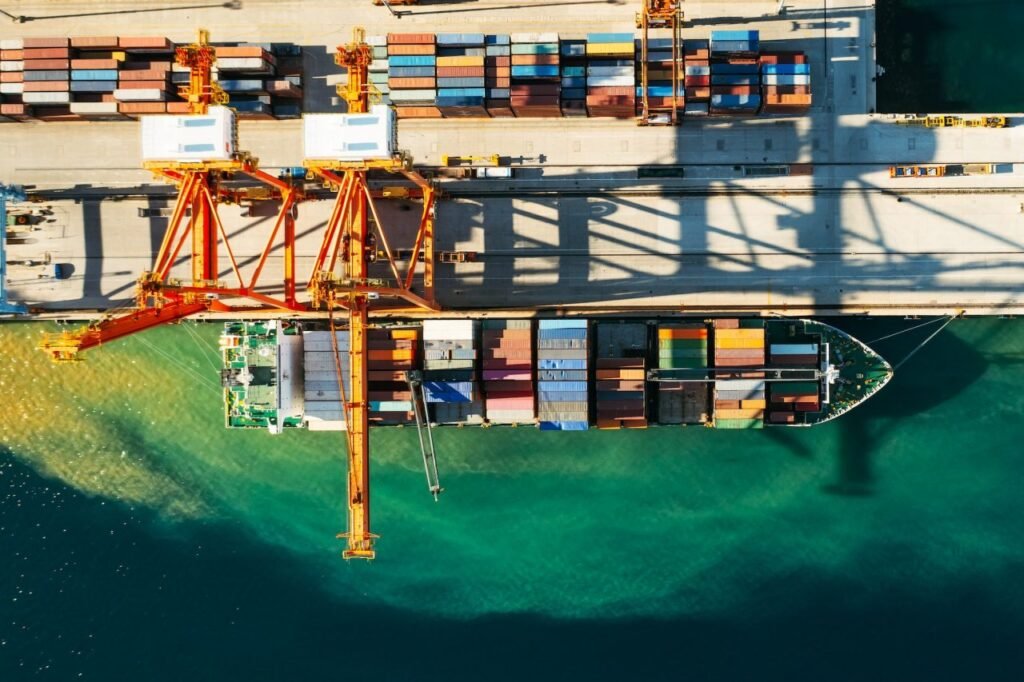
Sea Freight Shipping from China to Mexico
Enjoy cost savings with our high-capacity sea freight options, ideal for large shipments without the rush.
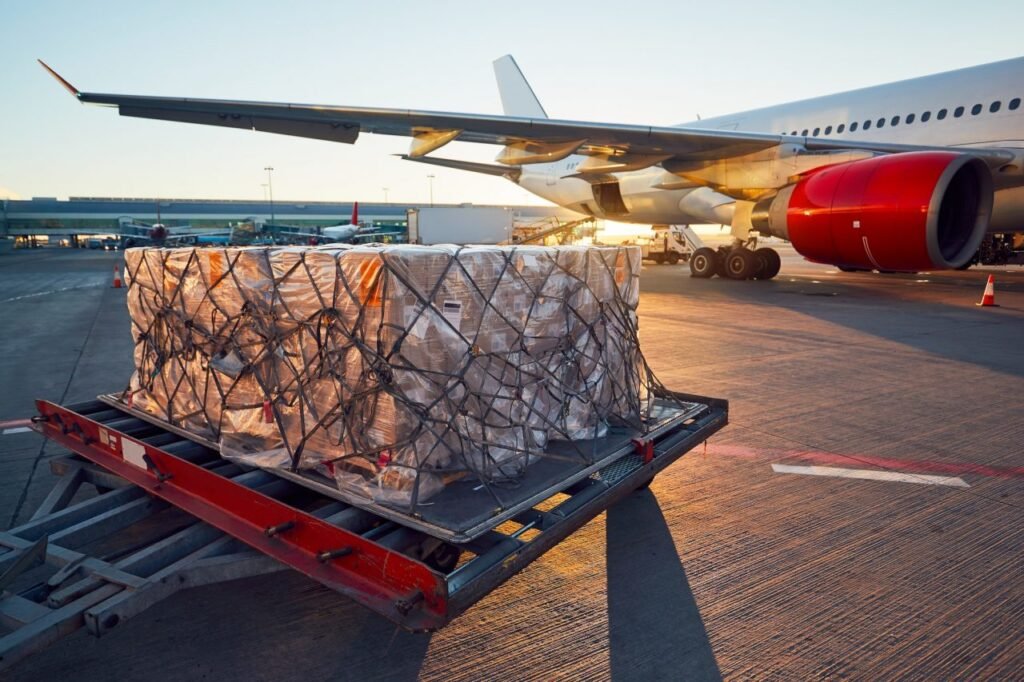
Air Freight Shipping from China to Mexico
Expedite your urgent shipments with our air freight services, ensuring your business stays on schedule.

Door to Door Shipping from China to Mexico
Experience hassle-free shipping with our door-to-door service, covering all logistics from pickup to delivery.

Shipping From China to Amazon FBA
Leverage our customized services for Amazon FBA to streamline your supply chain and enhance your business efficiency.
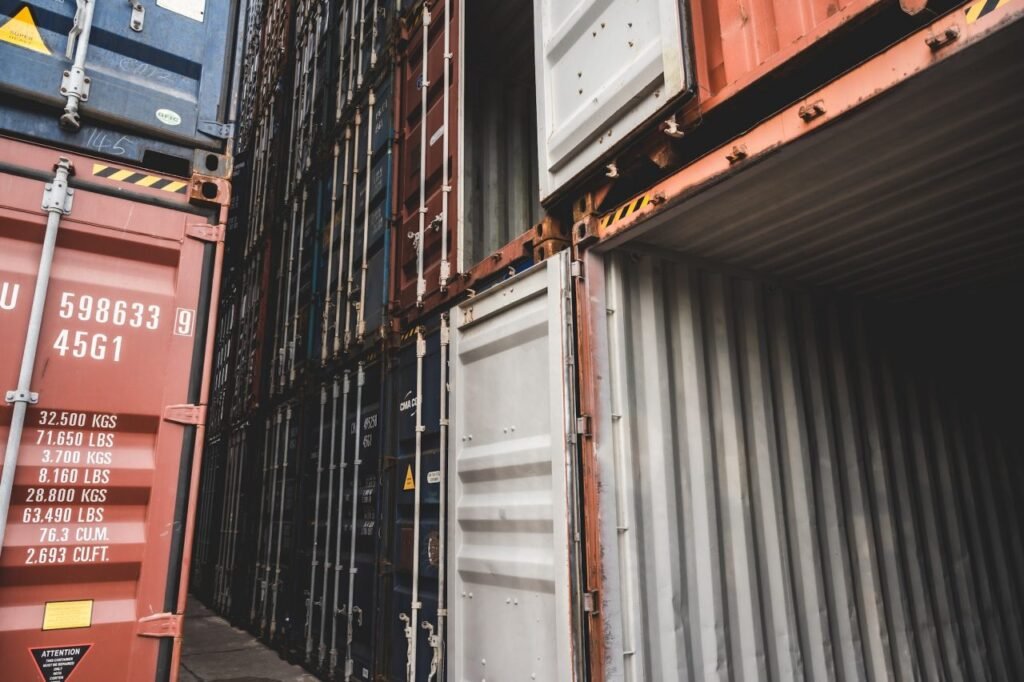
Cheapest Shipping From China to Mexico
Maximize your budget with our affordable shipping solutions, designed to deliver cost-effective and reliable transport.
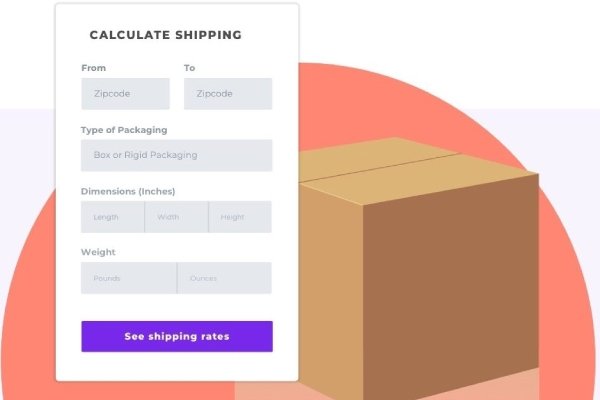
How long/much Shipping from China to Mexico
Plan effectively with our clear and upfront information on timelines and costs, empowering your business decision-making.
FCL Shipping From China to Mexico
Mbmforwarding’s FCL Shipping service can secure your large shipments with Full Container Load (FCL) shipping, ensuring your cargo travels together without disruptions, perfect for bulk goods needing robust protection.
LCL Shipping From China to Mexico
Benefit from the flexibility of Less than Container Load (LCL) shipping, which allows you to send smaller shipments more frequently, helping manage inventory effectively without the need to fill a full container.
Additional services for shipping from China to Mexico
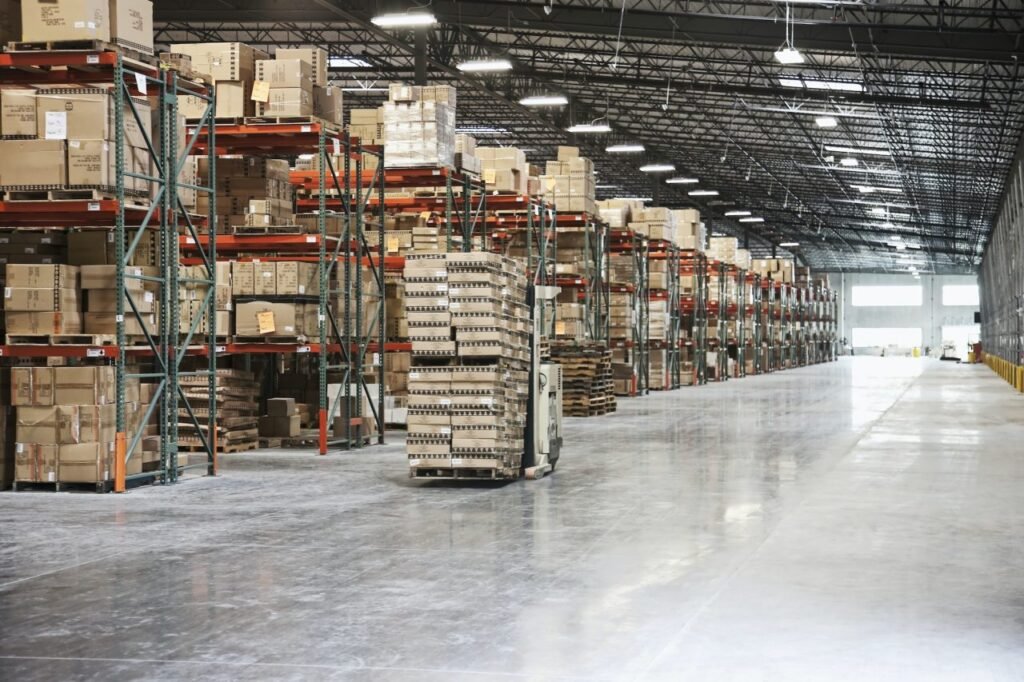
Pickup & Delivery
Streamline your logistics with our reliable pickup and delivery services, ensuring timely and efficient transportation from your doorstep directly to the destination, enhancing operational speed and reliability.

Warehouse
Utilize our secure and scalable warehousing solutions to safely store your goods, offering flexible storage options that adapt to your business needs, helping optimize inventory management and accessibility.
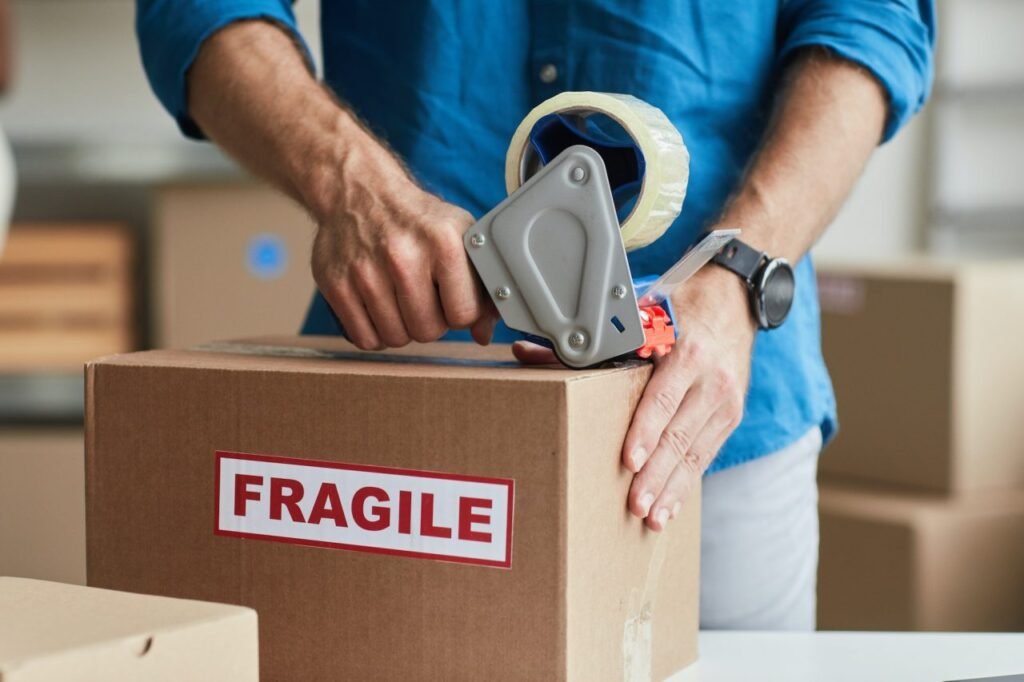
Cargo Insurance
Protect your investments with comprehensive cargo insurance, providing financial security and peace of mind against potential transit damages or losses, ensuring smooth and risk-free shipping operations.
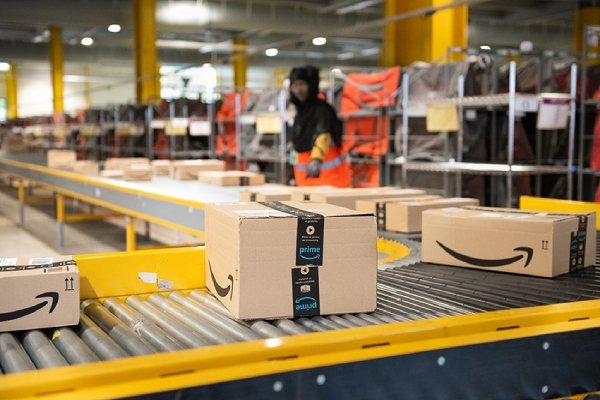
Shipping to FBA Warehouse
Facilitate seamless integration with Amazon’s network through our specialized shipping services to FBA warehouses, optimizing your fulfillment strategy, reducing handling times, and boosting your sales potential.

Custom Clearance
Expedite your international shipments with our expert custom clearance services, minimizing delays and ensuring compliance with all global trade regulations, simplifying your import/export processes.
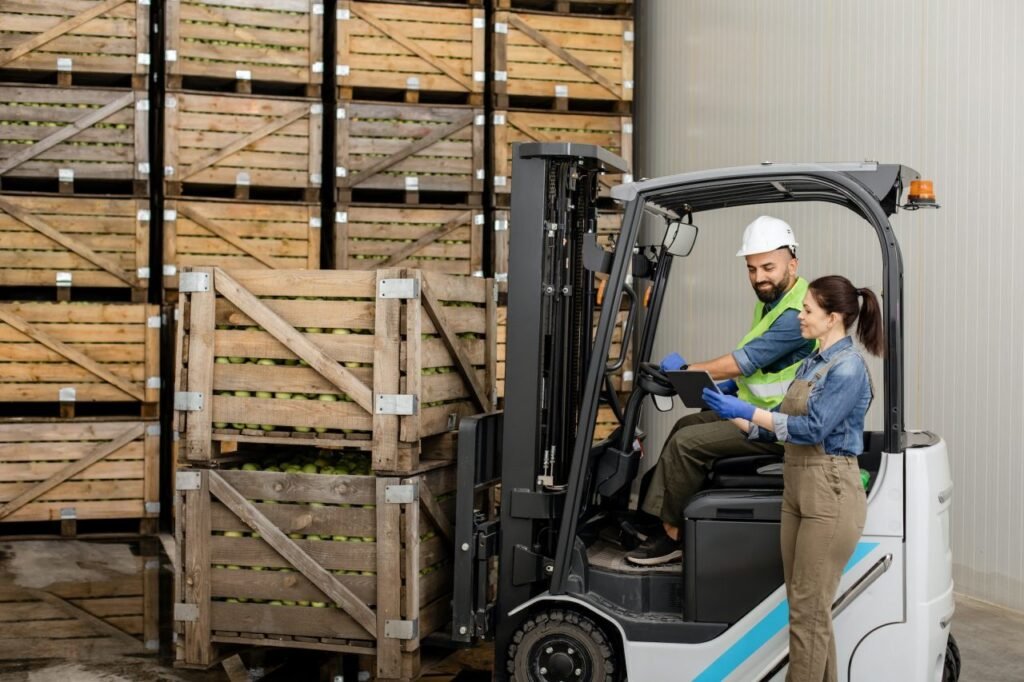
Loading Inspection
Ensure the quality and condition of your goods with our thorough loading inspections, securing shipment integrity and enhancing overall customer satisfaction by preventing potential issues during transit.

Express Shipping
Accelerate your delivery times with our express shipping options, ideal for urgent shipments that require fast and reliable service, helping you meet tight deadlines and exceed customer expectations.
Why Choose MBM ?
Experience the benefits of smooth moving
By choosing mbmlog, you gain competitive pricing, reliable and timely deliveries, and 24/7 expert support. Benefit from our 20 years of experience, seamless customs clearance, and free warehouse storage, ensuring your logistics are efficient, cost-effective, and worry-free.
20 Years Expertise
Mbmlog offers unparalleled logistics solutions. Our extensive experience ensures efficient, reliable services tailored to meet your diverse shipping needs.
Free Warehouse
Enjoy up to 30 days of free warehouse storage with mbmlog. Our secure, well-organized facilities ensure your goods are stored safely.
24hx7 English Speaking Expert Supports
We provides 24hx7 English-speaking expert support, ensuring seamless, efficient communication and immediate assistance for all your logistics requirements.
Cargo Insurance
Our company offers comprehensive cargo insurance services, protecting your shipments with tailored insurance options, ensuring safety and peace of mind during transit.
On Tracking Services
Mbmlog's on tracking services provide real-time updates on your shipments, ensuring you always have accurate information about your cargo's status.
Professional Custom Clearance
Our professional custom clearance services guarantee smooth, efficient processing. Our expert team handles all documentation, ensuring compliance with regulations.
